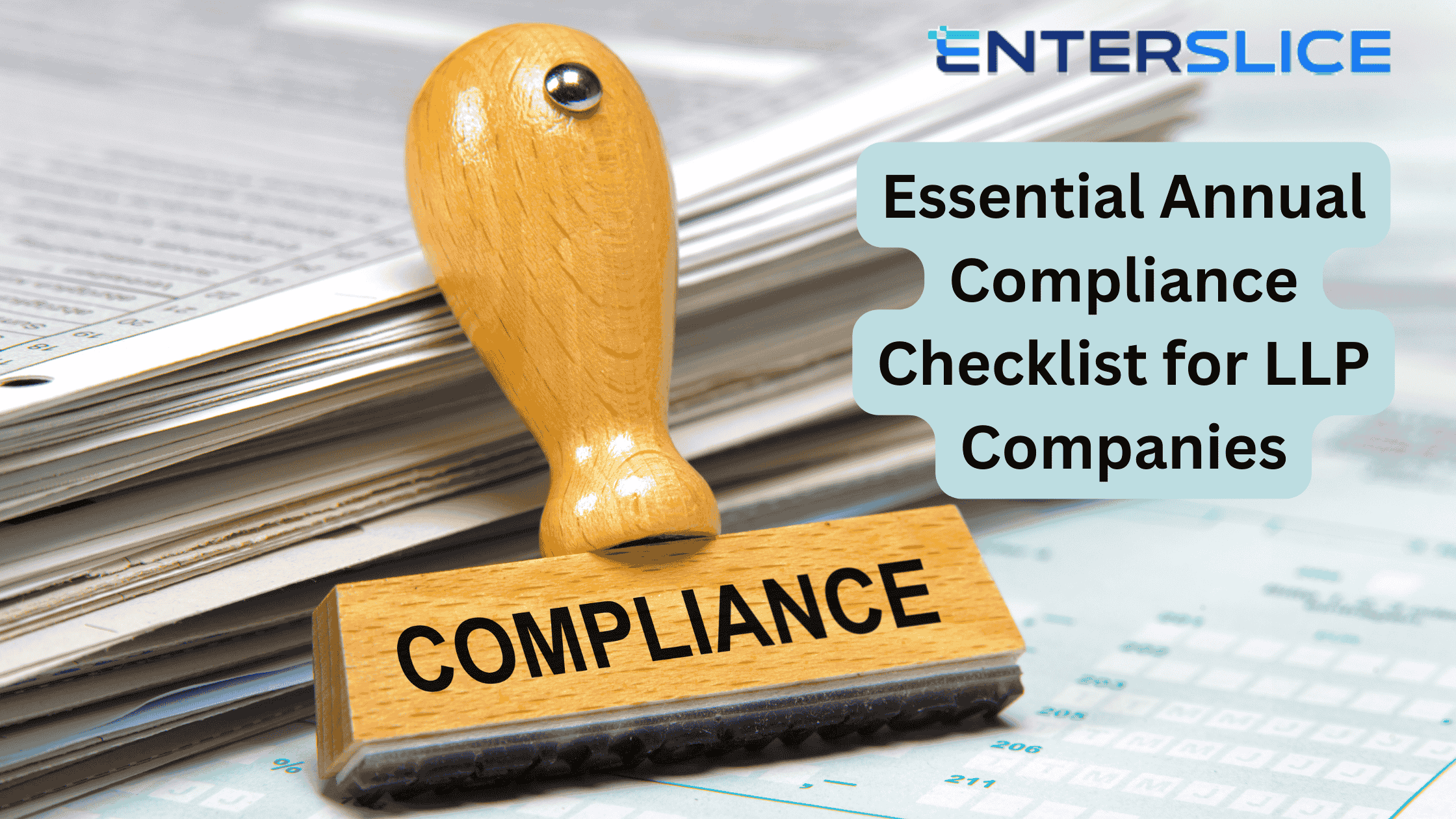Limited Liability Partnerships (LLPs) have gained popularity in India due to their flexible structure and limited liability features. However, running an LLP comes with its own set of compliance requirements that must be adhered to annually. This article provides an essential annual compliance checklist for LLP companies to ensure they meet regulatory obligations and maintain good standing with the authorities.
Understanding LLP Compliance
Before diving into the checklist, it’s crucial to understand what compliance entails for an LLP. LLPs are governed by the Limited Liability Partnership Act, 2008, along with various regulations set forth by the Ministry of Corporate Affairs (MCA). These compliance requirements are designed to enhance transparency and protect the interests of stakeholders, including partners and the general public.
Importance of an LLP Compliance Checklist
An LLP compliance checklist helps ensure that all necessary steps are taken to comply with legal requirements. It helps:
- Avoid penalties and fines: Non-compliance can lead to financial penalties and legal consequences.
- Maintain good standing: Regular compliance fosters trust and confidence among stakeholders.
- Streamline operations: A checklist simplifies the compliance process, making it easier to track requirements and deadlines.
Essential Annual Compliance Checklist for LLP Companies
Here’s a detailed checklist that LLPs should follow to ensure they meet their annual compliance obligations:
1. Conduct an Annual General Meeting (AGM)
Although LLPs are not mandated to hold AGMs like traditional companies, it is advisable to hold a meeting to discuss the partnership’s performance and future strategies. Documenting discussions and resolutions in meeting minutes is good practice.
2. Prepare and File Annual Return (Form 11)
Every LLP must file an Annual Return (Form 11) with the Registrar of Companies (RoC) within 60 days from the end of the financial year. The form includes details such as:
- Name of the LLP
- Registration number
- Address of the registered office
- Details of partners
- Changes in partnership or capital
3. File Statement of Account & Solvency (Form 8)
LLPs are required to file a Statement of Account and Solvency (Form 8) within 30 days from the end of the six months of the financial year. This form contains financial statements and a declaration of solvency, ensuring that the LLP is capable of meeting its liabilities.
4. Maintain Proper Books of Accounts
LLPs must maintain accurate books of accounts, including:
- Cash books
- Ledgers
- Bank statements
- Invoices
These records must be kept for a minimum of eight years and should be made available for inspection by the RoC if requested.
5. Update Changes in Partners or Registered Office
If there are any changes in the LLP’s partners or the registered office, the LLP must notify the RoC by filing the relevant forms (e.g., Form 3 for changes in partnership and Form 5 for changes in the registered office).
6. Comply with Tax Obligations
LLPs must comply with tax regulations, including:
- Income Tax Filing: LLPs are required to file their income tax return (ITR) annually by July 31st of the assessment year. Ensure that proper tax audits are conducted if applicable.
- Goods and Services Tax (GST): If the LLP is registered for GST, it must file monthly/quarterly GST returns based on its turnover.
7. Conduct Internal Audit (if applicable)
If the LLP meets certain criteria regarding turnover or borrowing, it may be required to conduct an internal audit. This audit ensures that financial statements are accurate and comply with legal standards.
8. Ensure Compliance with Other Laws
LLPs must also comply with various other laws, depending on their business activities. This could include:
- Employment laws: Adhering to labor laws and maintaining employee records.
- Environmental regulations: Complying with environmental laws applicable to the industry.
9. File for Trademark Registration (if applicable)
If the LLP uses a unique brand name or logo, it should consider applying for trademark registration. This protects intellectual property and prevents unauthorized use by others.
10. Renew Licenses and Permits
Ensure that any business licenses or permits are renewed annually. This includes trade licenses, GST registrations, and other industry-specific licenses.
Conclusion
Maintaining compliance as an LLP is essential for the sustainability and growth of the business. By following this LLP compliance checklist, companies can ensure they meet their legal obligations and avoid potential penalties. Regularly reviewing and updating compliance practices not only enhances the credibility of the LLP but also contributes to a positive reputation in the market.
Also, read:
What is Annual Compliance for Public Limited Company?
What are the benefits of Private Limited Company Annual Compliance?



